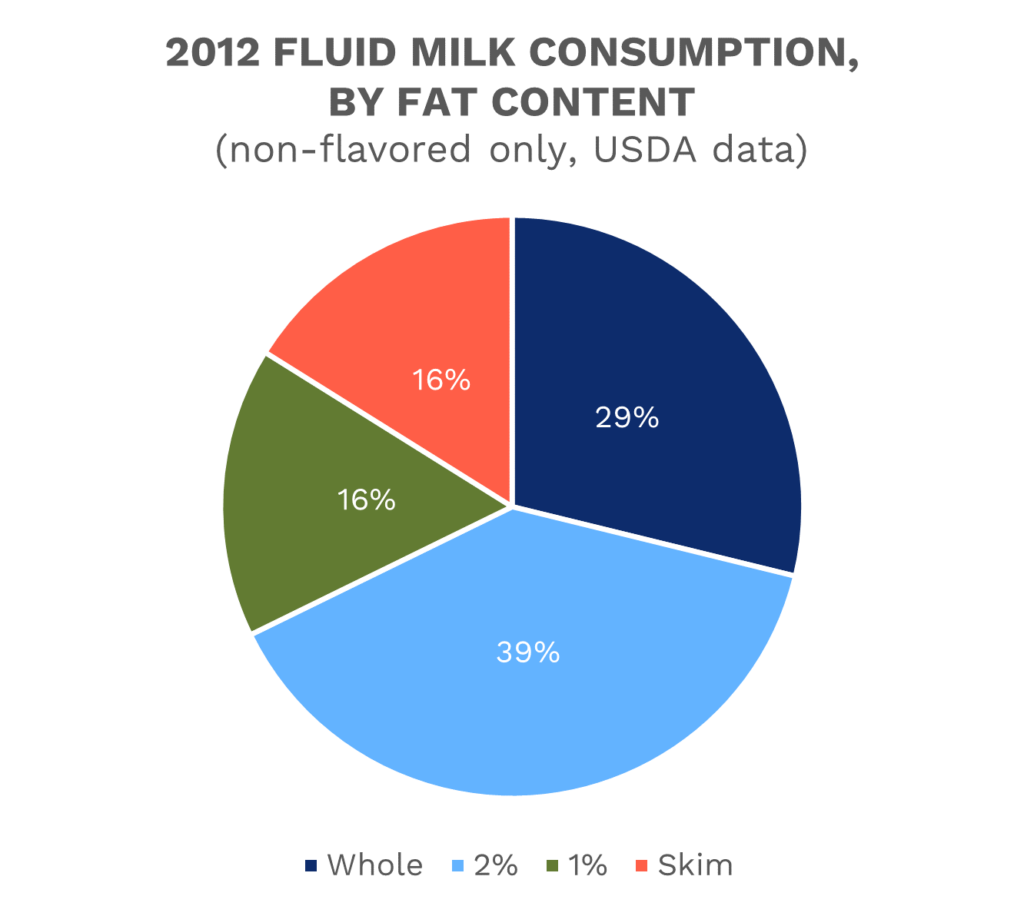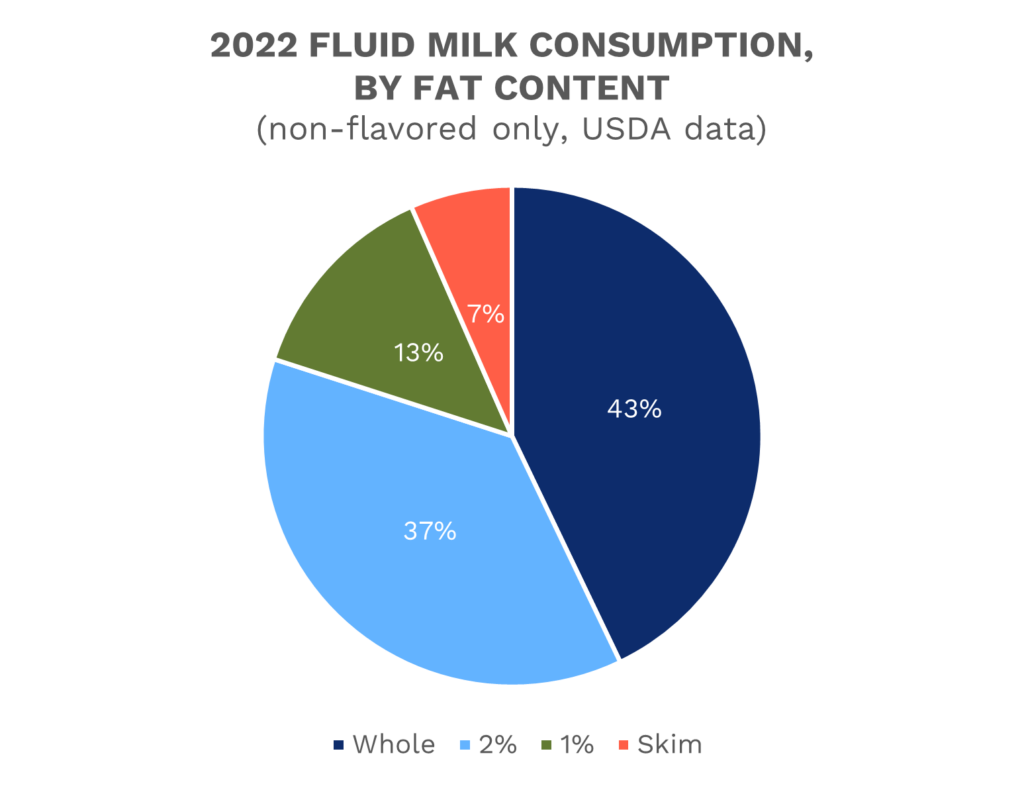Much has changed about milk consumption since 2012, the year that whole and 2 percent milk varieties were no longer allowed in federal school meal programs. Since then, the body of research supporting the benefits of fuller-fat milk has grown more robust, with research showing that dairy foods at higher fat levels are linked to outcomes such as lower total body mass in kids and lower childhood obesity. Milk is, simply put, a nutrition powerhouse.
Concern over food waste has also grown, with food waste rising when kids are given meals they don’t want to eat. Meanwhile, the gulf between what kids drink at home versus what they’re served in schools – already gaping when the ban took effect — has only widened.
This is the percentage of U.S. fluid milk consumption, excluding flavored varieties, in 2012, and again in 2022. Even at the time the rules changed, keeping whole and 2 percent milk off school meal menus was out of step with what parents gave their own children, with roughly 68 percent of consumption coming from those varieties. That should have been an ominous sign for anyone who ever thought children would flock to milk that didn’t taste like what they had at home.
That disconnect is even worse today.
In 2022, whole and 2 percent milk accounted for roughly 80 percent of consumption – and still, students don’t have access to the same healthy choices they almost certainly have at home. This is a lost opportunity for high-quality, affordable nutrition that kids would gladly consume. And that’s why, when the House of Representatives takes up the Whole Milk for Healthy Kids Act this week, lawmakers should take heed of the choices voters make at the grocery store – decisions that align with the latest scientific research on the benefits of dairy at all fat levels as well as consumer preference.
Having whole and 2 percent milk in school meals will nourish children and reduce food waste. And most importantly, it encourages kids to consume the nutrients they need. Taking the most popular varieties of milk out of meals was a questionable decision in 2012 – it’s indefensible in 2023. NMPF has a call to action urging lawmakers to pass the bill – the bigger the margin, the more pressure on the Senate to make it law. Dairy farmers, as well as parents and educators everywhere, will be watching the House with great interest this week.
And when common sense wins, we know exactly what we’ll drink at the celebration.







